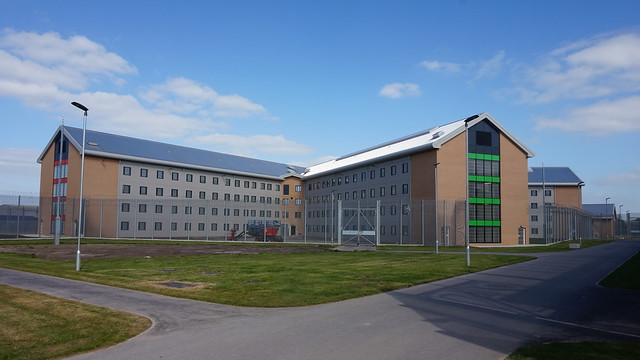New research, funded by the Economic & Social Research Council (ESRC) which begins this week, will seek to unlock an age old question of whether prisons can really rehabilitate offenders.
The project, led by academics at the universities of Bath and Leicester, is set in the context of a UK prison system in a state of crisis. In August, following a damning report into its operations, the government announced it would take back control of HMP Birmingham from the private sector amid soaring violence and drug use.
Learning from Berwyn
By studying HMP Berwyn – held-up by government as a model for a modern prison – the research, which is led by Criminology Professor Yvonne Jewkes at the University of Bath and Dr Kate Gooch from the School of Law at the University of Leicester, will address what steps prisons can take if they are to be successful in helping prisoners transform their lives and stop re-offending upon release.
At a time of reform and expansion of the prison estate, the notion of ‘rehabilitative cultures’ has gained rapid traction in Her Majesty’s Prison and Probation Service (HMPPS). With this focus, the researchers will look at the opportunities and limits of rehabilitative culture within UK prisons.
Professor Jewkes explained: “We are particularly interested in looking in detail at how rehabilitation currently works in prisons in England and Wales. This is an age-old debate which is impacted by a range of factors – such as how prisons are designed, prison leadership and staff-prisoner relationships. We’re interested in learning from the case of HMP Berwyn so that improvements can be made nationwide.”
HMP Berwyn in Wrexham is a ‘Category C’, medium-security facility that has been designated the UK’s first ‘Rehabilitation Prison’. Despite the relatively standard, Category B (high-security) prison design imposed on them, attempts have been made at Berwyn to improve the physical environment. While some of these changes are small in nature and therefore cheap to implement – for example filling empty wall space with very large photographic images of the local Welsh landscape – the researchers want to know more about the positive effects such initiatives might have.
Other cultural changes have been implemented at Berwyn too, including in the language used by prison officers. Here, occupants are referred to as ‘men’ not prisoners, they are housed in ‘communities’ not ‘blocks’ and they are locked up in ‘rooms’ rather than cells.
Serious about rehabilitation
Professor Jewkes adds: “Some of these changes at Berwyn are relatively simple but they might be having an important effect when it comes to making prisoners feel that they are treated with respect and decency. And if as a society we are serious about rehabilitation and stopping re-offending then we need to look seriously at how these sorts of steps could be helping. “It’s about striking the right balance between the competing aims of prisons – punishment but also rehabilitation.”
The decision from HMP Berwyn’s management chimes more with prison cultures more generally associated with small prisons in Scandinavia. Whereas English and Welsh prisons house on average 600 prisoners – with some of the larger ‘Titan’ ones able to accommodate over 2,000 prisoners – average capacity for Norwegian and Danish prisons is around 80.
This latest project builds on another major, three-year ESRC-funded project conducted by Professor Jewkes that ended last year. This comparative study looked at prison architecture, design and technology in England & Wales, Scotland, Norway and Denmark. It resulted in Professor Jewkes being asked to provide evidence-based advice on the planning and design of new prisons to numerous architects and prison services around the world.
In addition Professor Jewkes has advised many prison governors in the UK and Ireland on how they can improve their custodial environments.
- Read Professor Jewkes and Dr Kate Gooch in The Conversation 'How lessons in Scandinavian design could help prisons with rehabilitation'.
New criminology course at Bath
Professor Joe Devine, Head of the Department of Social & Policy Sciences at the University of Bath, added: “We are delighted to welcome Yvonne to the University and look forward to the launch of our new undergraduate Criminology course in 2019. Yvonne’s expertise will bring real strengths to the Department as we try to unpick the multiple challenges which persist in tackling crime, its impact on wider society and in responding via the criminal justice system.”
She has recently joined the University of Bath’s Department of Social & Policy Sciences as its first Professor of Criminology ahead of a new BSc (Hons) in Criminology launching in September 2019.

